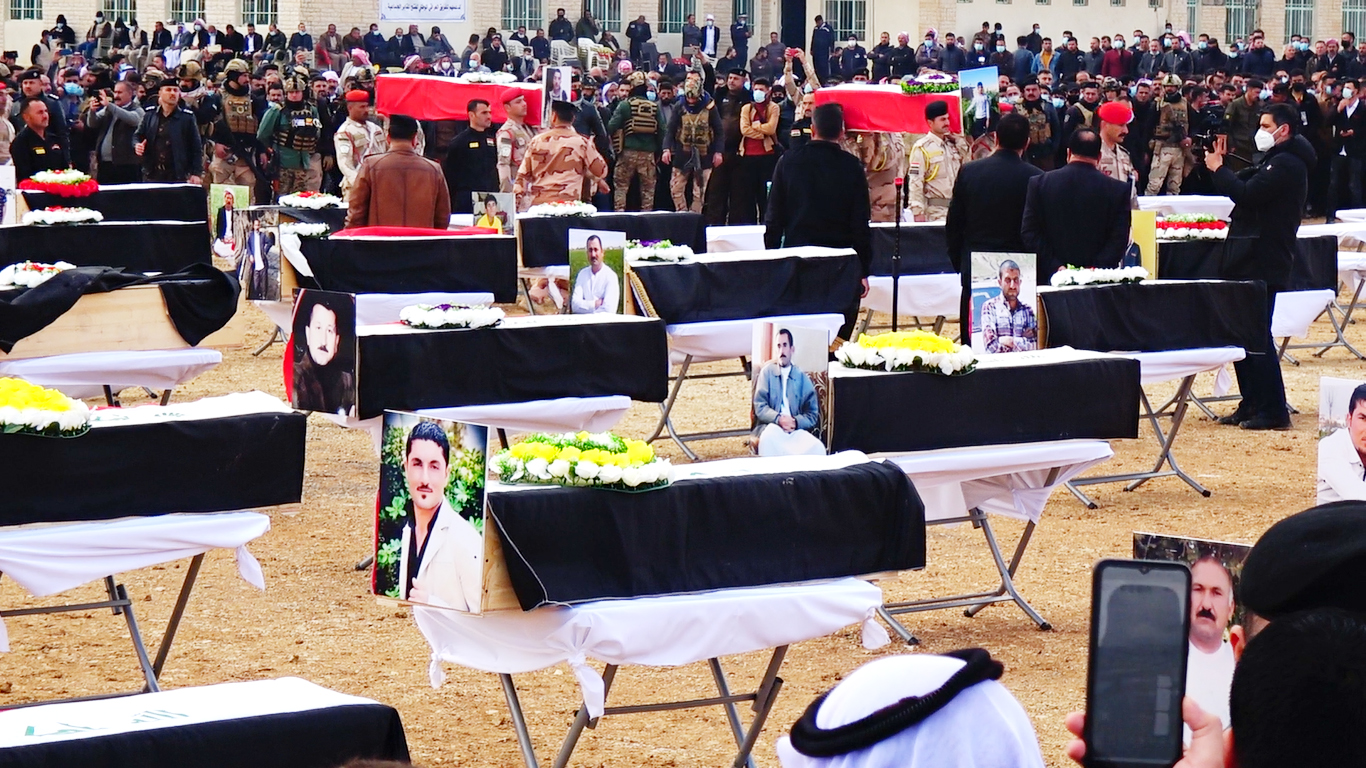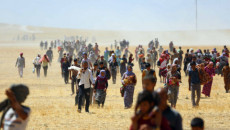The relatives of the Ezidi (Yazidi) victims bought coffins for their bodies on their own and took the responsibility of transporting them from Baghdad Forenisc Medicine to the district of Shingal (Sinjar) of Ninewa province for reburial.
Last October, the Baghdad forensic medical examiner completed the identification of the bodies of 16 Ezidis and decided to hand them over to their relatives, eight years after they were killed by the extremist militants of the Islamic State of Iraq and the Levant ISIL.
Yasser Omar, an Ezidi citizen whose uncle and grandmother were among the 16 bodies, told KirkukNow, “they told us to buy coffins ourselves. We bought each coffin for 100,000 dinars (USD70). The government also have not provided transportation or coffins.”
“We asked the relevant authorities in Iraq to at least take responsibility for transporting them from Baghdad to Shingal, but they did not do that. We believe this is disrespect to the victims,” Omar added.
On February 6, 2021, the bodies of 104 Yazidis were brought back to Shingal from Baghdad and reburied in a ceremony attended by relatives of victims of ISIS, religious leaders, officials of both the Iraqi and Kurdistan Regional Governments.
Darwish Chuki, director of Tula, an organization for ISIS survivors, said the families and relatives of the victims asked the Baghdad forensic medical examiner to transfer the bodies to Mosul, but they did not do so. The families themselves bought coffins and transported the bodies.”
Their relatives asked the Baghdad forensic medical examiner to transport their bodies to Mosul, but they did not do so
“This is an insult to the victims and their families,” Chuki said.
"Previously, the government provided coffins for the bodies and transported them to their homes in an orderly manner," he added.
KirkukNow could not get comments of the Iraqi Martyrs Agency on the treatment of the bodies.
Seized in August 2014 by ISIS militants whom accused the Ezidis of being “heretics,” Shingal has been the scene of tragedy: a genocidal campaign of killings, rape, abductions and enslavement, amounted to genocide.
Shingal is home to 82 mass graves and tens of individual graves for Ezidis slaughtered at the hands of the extremist militants of IS. According to KRG office figures, out of 550,000 Ezidis, 360,000 were displaced, 160,000 back to Shingal, and 100,000 migrated abroad.
Shingal, on the border of Iraq-Syria, is home to hundreds of thousands of the Ezidi community targeted by Islamic State in Iraq and Levant ISIL in August 2014 and one of the disputed territories between Baghdad and Erbil.
On March 15, 2019, the first mass grave for the Eizidi victims was unearthed in the village of Kojo where about 500 bodies were collected from 20 mass graves, official records of Iraqi national team for mass graves said. 104 bodies were reburied in Kojo last February.






